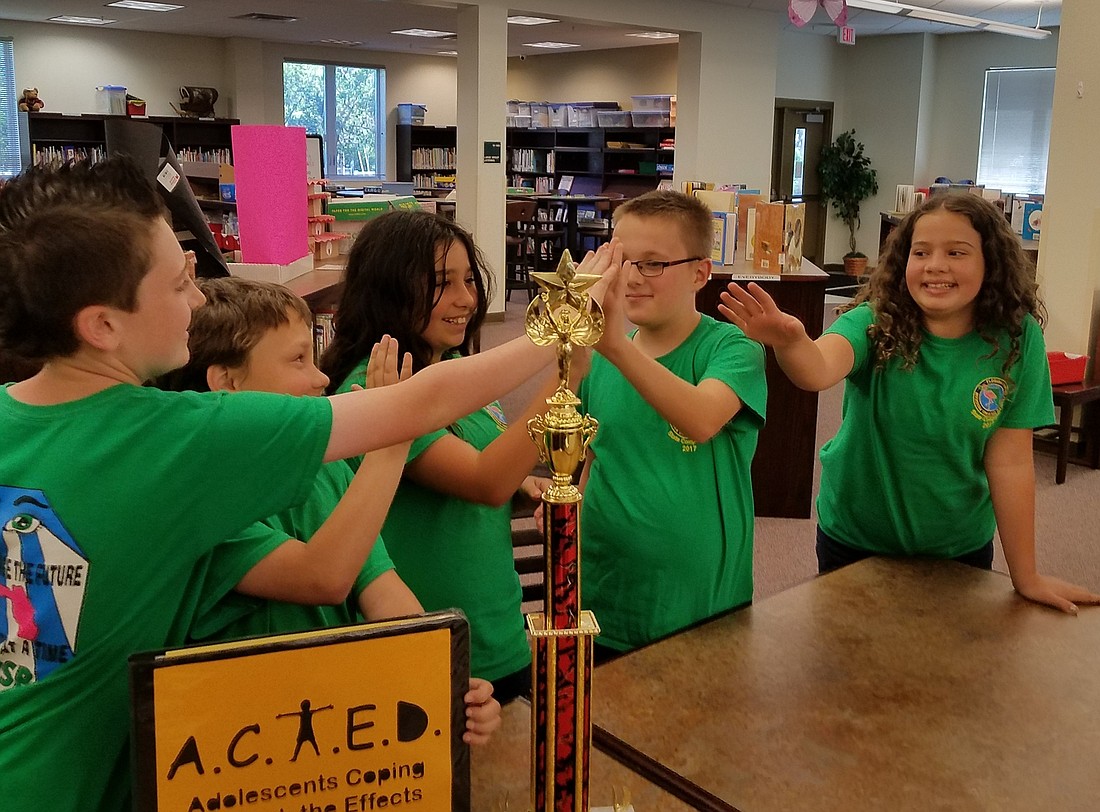- January 16, 2025
-
-
Loading

Loading

The issue began as a personal one: Bunnell Elementary School fifth-grader Chloe Long was having some challenges come up as she went through her parents' divorce.
But as Chloe and other members of her Future Problem Solving group began to research ideas around how kids can better deal with the effects of divorce, they found out just how great a need their might be. With only four Bunnell teachers responding to a survey they put out asking how many children in their class might benefit from a support group for those experiencing divorce or separation or living in single-parent homes, 22 students -- or about one-quarter of each class -- were recommended. It would be safe to assume that number would be much higher if the same ratio held true in each of the school's classrooms.
"That's when we started thinking, this could be a really big idea," said Jack Gilvary, another member of Chloe's FPS team.
The group named its project A.C.T.E.D. (Adolescents Coping Through Effects of Divorce) and with help from their other team members (fellow fifth-graders Grant McMillan, Josefine D'Elia, and Zachary Bennett) began strategizing ways they might carry their plan out.
After meeting with guidance counselors and mental health officials, the team organized regular support group meetings for students, held for 30 minutes during the school day and facilitated by A.C.T.E.D. members.
Grant recalled how he suggested the idea of "ice-breaker" questions to make kids open up and feel more comfortable to share their experiences.
"And then we made a 'worry box,' where the kids could take their bad feelings, like sadness, frustration, or anxiety, write those feelings down and put them in the box," Grant said. "The fun part was crushing the box. We all felt happy after that."
Added Josephine, "We were surprised at how quickly they [students] opened up."
The group has held a total of seven support groups so far and is focused on not only growing the group at Bunnell Elementary but replicating it at other schools across the district, perhaps adding other elements such as stress-relieving yoga or meditation. They have met with Palm Coast Mayor Milissa Holland and also plan to present their plan to the Palm Coast City Council soon.
For the A.C.T.E.D team, the recent statewide FPS competition held in Orlando in late-March was the first time any of them had presented to evaluators before. The students said they were very prepared, even answering questions like the one Zachary fielded about what they would do if the project had to be concluded soon (he answered that they would want to survey the impact they'd already had in a short period so far.
Judges at the statewide competition were clearly impressed with the A.C.T.E.D project, awarding the group a Grand Champion trophy in the junior division for Community Problem Solving.
Now it's on to internationals, with the team preparing to up their game for the competition to be held at the University of Wisconsin in June. Between now and then, A.C.T.E.D. hopes to have grown in student participation and also in getting the word out to the rest of the community about what they are trying to achieve.
As Jack said, "There are so many possibilities, it's exciting to think we could do anything with it, really."